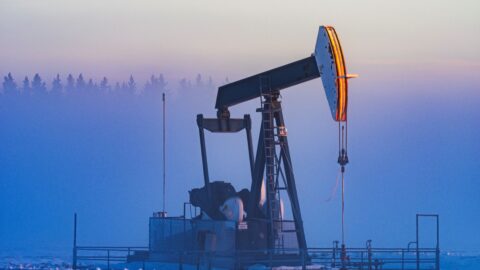3 Things to Know About Gas Pipeline Regulations
 A ruptured natural gas pipeline in the quiet community of San Bruno, California ignited on the evening of September 9, 2010. The resulting fire destroyed 38 homes, killed eight people, and injured many others. It was one of the biggest pipeline explosions in recent history, and it very likely could have been prevented.
A ruptured natural gas pipeline in the quiet community of San Bruno, California ignited on the evening of September 9, 2010. The resulting fire destroyed 38 homes, killed eight people, and injured many others. It was one of the biggest pipeline explosions in recent history, and it very likely could have been prevented.
Now, almost six years later, the U.S. Pipeline and Hazardous Materials Safety Administration (PHMSA) is proposing new regulations to prevent serious incidents, like what happened in San Bruno, from happening again.
Safety is always priority one, and it is unfortunate it took a tragedy like this to bring about a much-needed overhaul of these rules. But, as a related benefit, the same integrity standards that ensure pipeline system safety can also work to reduce climate-disrupting emissions of methane, the main ingredient in natural gas.
The new regulations –if adopted intact– would make a massive impact, covering over 300,000 miles of existing natural gas transmission pipelines and another 356,000 miles of gathering lines projected to be built over the next few decades. This Thursday, the agency will wrap up the public comment period, and begin deliberating on a final rule. There are three important things to know before the rules become final.
One: Natural gas pipelines are a significant source of methane pollution.
According to the U.S. Environmental Protection Agency, the natural gas transmission and storage system emits approximately 1.28 million tons of methane pollution per year — much of this through fugitive pipeline leaks and other malfunctioning equipment. Methane is a powerful greenhouse gas, which means these leaks are not only wasteful and potentially hazardous, they’re also contributing to climate change.
Two: More pipeline safety testing does not mean more emissions.
PHMSA’s proposal requires pipeline operators to ensure pipelines are constructed and inspected properly. When pipeline operators conduct certain types of maintenance on their pipelines, particularly pressure tests, they must vacate or “blow down” natural gas through the segment being tested. If that gas is simply vented, methane is released into atmosphere. However, there are cost-effective alternatives to venting which could reduce methane emissions and save the gas for future use.
A leading environmental consulting firm recently looked at the proposed pipeline rules and the associated emissions that increased safety testing would produce. They found that unmitigated blowdown events may cause an additional annual average of nearly 1,400 tons of methane pollution. Fortunately, the same analysis calculated that operators can cost-effectively mitigate up to 90% of this pollution by using existing emission reduction technologies – meaning concerns of increased emissions due to safety testing shouldn’t stand in the way of securing a strong pipeline rule.
Three: Stronger pipeline regulations ultimately protect communities and the environment.
By strengthening standards for pipeline integrity, reducing leaks and minimizing emissions PHMSA could both prevent pipeline accidents and reduce greenhouse gas emissions, but only if key improvements in the current proposal are retained in the final regulation. These key rule improvements would:
- Repeal gas gathering line exemptions from critical reporting requirements;
- Subject higher pressure gathering lines over eight inches in diameter to several key integrity management rules, such as leak survey and repair requirements, damage prevention, corrosion control, maximum allowable operating pressure (MAOP) limits, and emergency planning;
- Require operators to verify MAOP using specific testing methods;
- Expand integrity management requirements beyond only the most densely populated areas so that they are required in Moderate Consequence Areas (MCAs);
- Clarify response timelines and triggering events for pipeline repairs;
- Require integrity assessments and recurring assessments for pipelines outside high-consequence areas.
The public comment period for these proposed regulations ends July 7, meaning the time to voice support for these protections is now. Join Environmental Defense Fund, The Pipeline Safety Trust, the Sierra Club and others who are calling on PHMSA to help clean the air and protect our communities.











